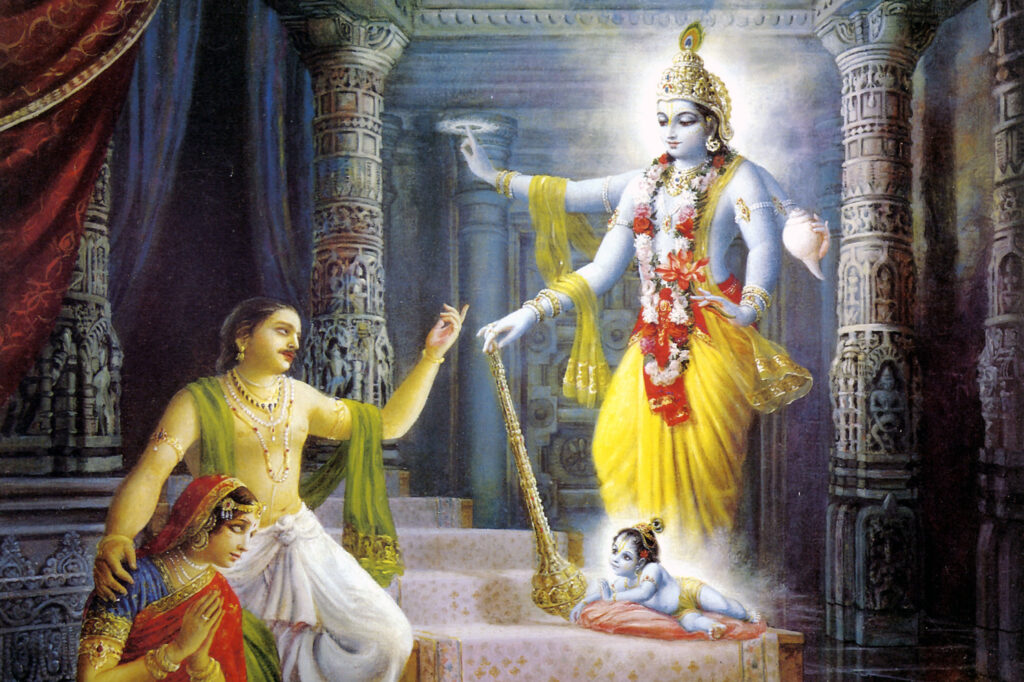Srila Prabhupada once said that spiritual life is 90% common sense. Most things just follow a natural line of thought. Once one understands the line of thought he can understand the reason and meaning of most rituals, habits, and standards that follow it. Most of the time is not about finding the verse or book where it’s mentioned but simply about understanding the underlying logic.

For example, in the Gita Krsna says to offer him fruits, leaves, flowers, and water. Nothing is mentioned about kachoris or rasagulas. So why do we offer rasagulas to Krsna if that’s not what He asked? The answer is pretty simple: we understand the principle of offering whatever we have of best to Krsna. If one has only leaves he can offer it to Krsna, but if one has rasagulas he should offer that. That’s actually what Srila Prabhupada explains in the purport.
One could argue that since the idea is to offer all the best to Krsna, and not only fruits, leaves, and flowers, why shouldn’t we offer expensive products like foie gras or caviar, for example? Where is the verse where it says it shouldn’t? Indeed, there is no verse where the words “foie gras” or “caviar” are directly mentioned, but in the Bhagavad-Gita Krsna explains the difference between foods in the modes of goodness, passion, and ignorance. Both are classified amongst the foods in ignorance and therefore shouldn’t be offered to Krsna, just like things like onions and garlic.
As we can see, properly understanding it requires to understand and balancing different passages and instructions. The same applies to most other philosophical principles in spiritual life.
We can see that often one may not understand the principle and arrogantly start to challenge and ask for “sastric references”. In most cases, this means simply being arrogant.
The transmission of Vedic knowledge is done through the parampara system, which is based on receiving knowledge from previous authorities. The process is that a disciple would approach a guru and by hearing and asking questions can understand the underlying logic behind the different statements from the scriptures, and thus can gradually learn to “break to code” of the scriptures, by understanding the underlying logic and the different conclusions behind the verses. One who discards this process and limits himself to just reading books and speculating on their meaning will just come to random conclusions, or just become confused by the apparently contradictory statements of the scriptures.
The parampara is thus based on learning from the previous acaryas, and not just trying to jump over them in the pursuit of direct “sastric references”.
We can observe this spirit causing problems in the Christian faith, for example. Christianity survived for many centuries in the form of the Catholic and Orthodox churches, which despite all problems preserved fragments of the original teachings of Christ transmitted through some resemblance of parampara. Because of this, these schools still transmitted a certain degree of truth, including concepts of renunciation and avoidance of sin, just like we also practice in the Vaishnava schools.
However, this system was later rejected by the Protestant Reformation, which broke with the established tradition in pursuance of direct interpretation of the scriptures. While this solved a few problems in the short term, it later resulted in the complete fragmentation of the faith, with everyone creating their own interpretations of the teachings of Christ and creating their own churches, propagating the most absurd ideas. Renunciation and abnegation were replaced by the idea that being rich means being favored by God, and therefore a rich follower is a better Christian than a poor follower. As a result, the whole purpose in many of these lines is simple economic development, which is quite different from what Christ was preaching.
When it comes to our own Vaishnava school, we can see that the same spirit of rejecting the teachings of the previous acarya and simply studying the scriptures independently is also causing serious problems in our movement.
Nowadays it’s common to see devotees who don’t accept Srila Prabhupada as the ultimate authority and don’t put much effort into studying his books or trying to understand his teachings. It’s also becoming progressively rarer to find devotees who are properly trained by their spiritual masters. Most of us just hear a few classes here and there and follow the parts we like, discarding what we don’t like or don’t understand. This is probably one of the greatest dangers our movement faces, since when we don’t understand the process we are practicing, we will inadvertently make changes and introduce modifications, that can gradually destroy the spirit of our movement.
One who doesn’t follow previous authorities and instead tries to just speculate his way through the scriptures is disconnected from the parampara, having thus little chance of properly understanding the scriptures.
